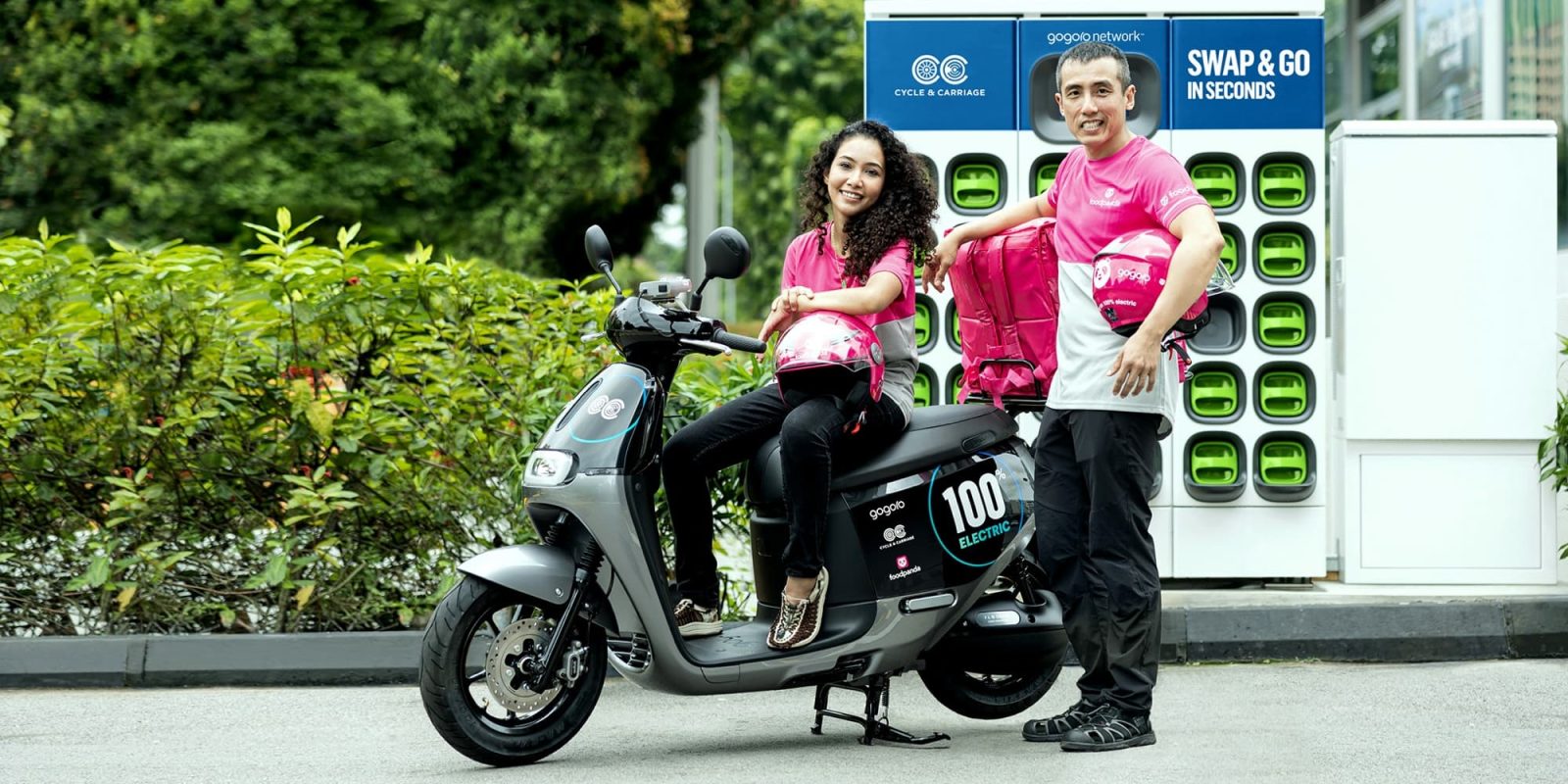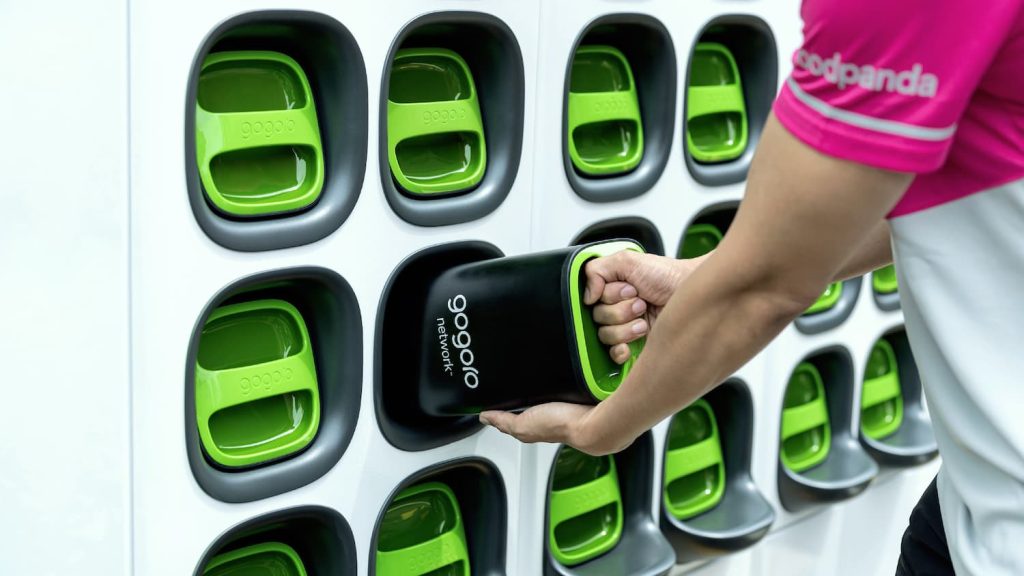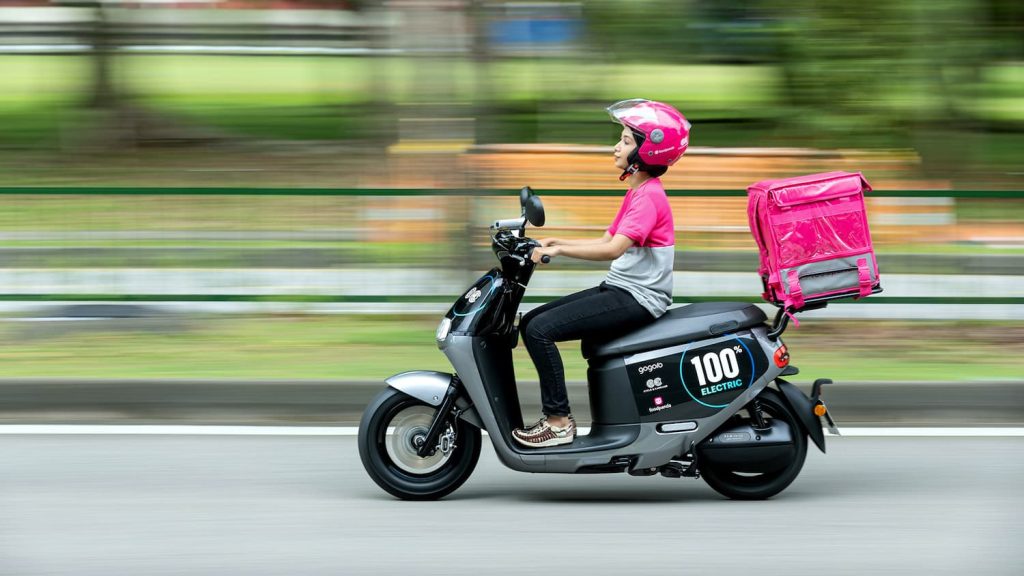
Gogoro, widely considered to be the world leader in battery swapping for light electric vehicles like e-motorbikes, has just launched operations in its latest global expansion to Singapore. A new partnership will now see Gogoro’s battery-swapping technology deployed for food delivery.
Gogoro and Cycle & Carriage Singapore (C&C) have announced a partnership with food delivery service foodpanda for a battery swapping scooter pilot. The partnership comes after the Singapore Land Transport Authority’s (LTA) announcement last year that it awarded Gogoro and C&C with a battery-swapping sandbox pilot for electric two-wheeled vehicles.
The electric scooters are ideal for commercial use such as delivery scooters like these that are in operation throughout the day. Gogoro scooters don’t need to stop and charge their batteries since the company is built upon its in-house battery-swapping architecture. That allows scooter riders to spend just a few seconds swapping batteries instead of many hours charging them.
The companies involved in the partnership explained that the pilot operated with foodpanda will offer insights that will be used to accelerate the adoption of sustainable mobility as Singapore moves toward a transportation system using cleaner and more sustainable energy.
As Gogoro’s founder and CEO Horace Luke expanded:
With more than 26 percent of all daily quick deliveries in Taiwan enabled by Gogoro battery swapping, I am excited to be introducing our battery swapping and vehicle technologies in Singapore with two market-leading partners like Cycle & Carriage Singapore and foodpanda. Cities like Singapore are at an inflection point of sustainability and are beginning to embrace sustainable transportation in new impactful ways. On average, last mile delivery riders ride more than six-times the distance as consumer riders, so enabling these delivery riders to adopt smart sustainable electric transportation can have an accelerated impact on a city.

The pilot will operate with Gogoro 2 electric scooters that use the company’s G2 Motor, described as a “hyper-efficient, water-cooled motor delivering incredible and efficient power and performance with a maximum speed of 90km/h.”
The scooters also use Gogoro’s FLO Drive system, which is based around a Gates Carbon Drive belt setup that reduces noise and removes maintenance associated with chain drives.
The Gogoro 2 holds a pair of Gogoro’s approximately 1.7 kWh batteries, whose combined 3.4 kWh capacity offers an estimated city range of up to 100 km (60 miles). The company says that six seconds is all that is needed to swap out the batteries for another 100 km of range.
I own a Gogoro S2 Performance electric scooter that I use as my daily driver, and in practice I find that the swap takes closer to 30 seconds when you include parking, opening the battery compartment, etc. But even 30 seconds is still blazing fast to completely top up the scooter’s “tank,” and is of course even faster than filling up a fuel tank on a combustion scooter – not to mention cleaner and nicer smelling!

In my city, Gogoro scooters are available both for purchase by private owners as well as for commercial use by delivery couriers. I frequently see them used in both roles, each with unique advantages. Commuters never have to worry about finding a place to charge, which is a serious concern in densely populated cities where many apartment dwellers lack a parking spot with a charging plug. Delivery riders don’t have to stop and charge for hours, which would impact their earnings.
Gogoro has aggressively expanded its operations to locations including India, Indonesia, South Korea, Taiwan, Israel, China and more, though the competition seems to have taken notice. Battery swapping has become a key focus of other companies, including KYMCO’s Ionex electric scooter and battery platform, as well as brand-agnostic battery swapping services like Vammo (previously Leoparda). But as others enter the market, they’ll have to compete with Gogoro’s massive first mover advantage. The Gogoro Network currently supports more than 524,000 riders and boasts more than 1.1 million smart batteries in circulation. Those batteries account for over 370 million swaps to date across the company’s 12,200 battery swapping GoStations at over 2,504 locations, which have been responsible for saving more than 250,000 tons of CO2 emissions.
FTC: We use income earning auto affiliate links. More.




Comments